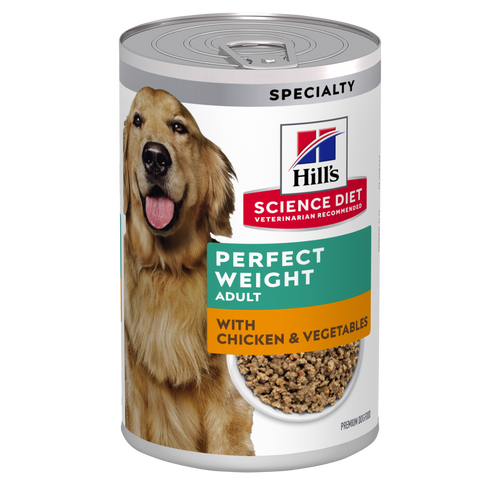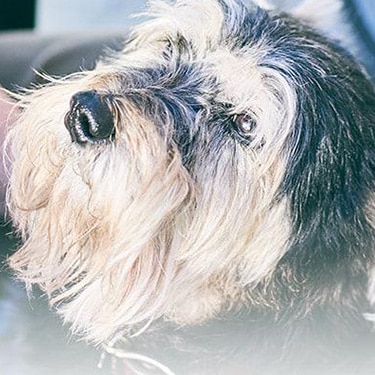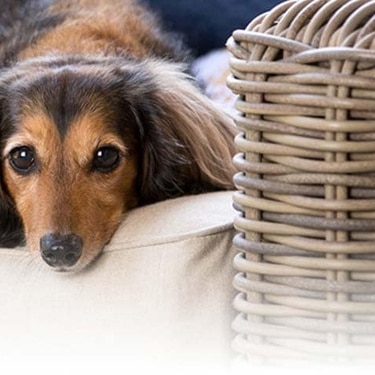
-
Find the right food for your petTake this quiz to see which food may be the best for your furry friend.Find the right food for your petTake this quiz to see which food may be the best for your furry friend.Health CategoryFeatured products
 Adult 6+ Large Breed Chicken Meal, Barley & Rice Recipe Dog Food
Adult 6+ Large Breed Chicken Meal, Barley & Rice Recipe Dog FoodSupports energy level, joint health, and beautiful coat in large breed mature dogs
Shop Now Adult Perfect Weight & Joint Support Chicken & Brown Rice Recipe Dog Food
Adult Perfect Weight & Joint Support Chicken & Brown Rice Recipe Dog FoodThis weight management and mobility support dog food was created with Hill’s unique understanding of the biology of overweight dogs.
Shop Now Healthy Mobility Large Breed Chicken Meal, Barley & Brown Rice Recipe Dog Food
Healthy Mobility Large Breed Chicken Meal, Barley & Brown Rice Recipe Dog FoodAdvanced nutrition shown to support joint health and improve mobility
Shop NowFeatured products Adult Perfect Weight Salmon & Vegetable
Adult Perfect Weight Salmon & VegetableOver 70% of cats lost weight within 10 weeks when fed this nutrition
Shop Now Adult Indoor Savory Chicken Entrée Cat Food
Adult Indoor Savory Chicken Entrée Cat FoodPrecisely balanced nutrition for indoor cats with the delicious taste of savory minced chicken
Shop Now Kitten with Salmon
Kitten with SalmonPrecisely balanced nutrition with the delicious taste of minced salmon to help build immunity and a healthy digestive system
Shop Now -
DogCat
- Cat Tips & Articles
-
Health Category
- Weight
- Skin & Food Sensitivities
- Urinary
- Digestive
- Kidney
- Dental
- Serious Illness
-
Life Stage
- Kitten Nutrition
- Adult Nutrition
Featured articles Water
WaterWater is the most important nutrient of all and essential for life. Animals can lose almost all their fat and half their protein and still survive, but if they lose 15% of their water, it will mean death.
Read More Pet Food Storage Tips
Pet Food Storage TipsWhere you store your cat and dog food can make a big difference in the quality and freshness once it is opened. Here are some common questions and recommendations for optimal storage for all of Hill’s dry and canned cat and dog food.
Read More The Right Diet For Your Pet
The Right Diet For Your PetLearn what to look for in healthy pet food & nutrition, including ingredients, quality of the manufacturer, your pet's age, and any special needs they have.
Read More -


Grooming is important for both the health of your pet and the bond you share. Grooming your puppy is a nice way to spend quality time together while also allowing you to monitor your dog's health by checking for cuts, bumps, tenderness, etc.
- Talk to your veterinarian or professional groomer about the pet brush or comb that works best for your puppy's coat and comfort.
- Establish a regular location and routine for grooming. Train your puppy to stand while grooming.
- Brush in the direction of hair growth. Brushing against the hair pattern may be uncomfortable for your puppy.
- Dogs with thick or long coats may need to be groomed every day to prevent painful mats and knots.
- Smooth-coated breeds may require grooming less frequently, but keep it a routine so it becomes familiar and expected.
- If your puppy needs professional grooming because of breed requirements or special fashion cuts, introduce your pet early to a friendly groomer.
Your puppy and bath time
The bathing products available for dogs today are almost as numerous as those for us humans, and they're much better suited to a dog's skin type than human shampoos. Choose a special dog shampoo that's best suited to your puppy's hair type and take extra care not to get any shampoo in his eyes when washing him.
You may want to invest in a non-slip rubber mat and place it on the bottom of the bathtub to give your puppy confidence during bath time. It's scary for a puppy to slide around on a slippery surface and this may increase his anxiety around bath time.
Ear care
A dog's ears normally do not require cleaning, but check them regularly for any dirt, debris or redness, especially if you've noticed your puppy scratching or shaking his head. Contact your veterinarian if you notice these signs or anything unusual. Ear mites and ear infections require treatment by a veterinarian.
If you do wish to clean your puppy's ears, ask your veterinarian for the best method and products to do this.
Dental care
Good oral health is essential to your puppy's overall health. Like you, your puppy needs regular dental care to remove plaque and tartar. Your veterinarian will examine your dog's mouth at every physical examination and will perform a professional cleaning as needed.
To help keep your puppy's teeth and gums healthy, brush your puppy's teeth regularly. Ask your veterinarian to show you how. Never use human toothpaste on your puppy – dental kits for dogs are available for daily use.
One last thing – be sure to report any broken teeth to your veterinarian immediately.
Dental problems
Because bad teeth are very common in dogs, now is the time to start paying careful attention to your dog's teeth. Check them regularly, at least once a week, and look out for early warning signs which include:


Tasty Tips
- Bad breath
- Bleeding gums
- Buildup of tartar and plaque on the teeth
Brushing your dog's teeth every day will go a long way toward preventing dental problems, so it's a good idea to start when he's a puppy. Ask your vet to recommend a dog toothpaste and toothbrush. Remember to never use human toothpaste on a dog.
How to brush your dog's teeth
- Make sure he's securely on his leash.
- Position yourself and your puppy so that you can have easy access to his mouth.
- Put some toothpaste on your finger and allow him to lick it off.
- Replace with more toothpaste and start gently massaging it onto his teeth. Once he's used to this, you can start using a dog toothbrush.
- Gently pull back his lips and cheeks to gain access to the premolars and molars.
- Brush in a circular motion, and be sure to brush where the tooth meets the gum line, reaching to the very back teeth, where problems are most likely to develop.
Although this task may seem daunting initially, it becomes easier with practice, and if your puppy gets used to it early in life, it will become a simple task for both of you.
As well as teeth brushing, there are special foods available that you can use to help keep your puppy's teeth and gums healthy when he becomes an adult, like Hill's Prescription Diet t/d dog food and Hill's Science Diet Oral Care dog food. These specially formulated dry foods are designed to wipe the teeth clean, helping to keep your pet's teeth free from plaque.
Nail care
Regular nail trims will blunt the sharp tips of your puppy's nails and minimize accidental scratches during play. Ask your veterinarian to show you how to trim your puppy's nails, as it is important to know how to avoid the nail's blood vessels and nerves in the pink base close to the toe.
If your dog has dark nails, you will not be able to see the pink base, so it will be best to ask your veterinarian or professional groomer to trim your puppy's nails for you. A nail trim every four weeks is usually enough.
When trimming your puppy's nails at home, use the following guidelines:
- Use only nail trimmers designed for dogs.
- Introduce nail trims gradually by first gently touching your puppy's paws as he nods off for a nap.
- Get your pet used to your fingers pressing against the footpads and separating the toes.
- At first, trim a few nails once a week. The more you do it, the more familiar it will become.
- Don't forget the dewclaws, which are extra toes on the front or back of the feet of some dogs. These can grow into the dog's skin if not kept well trimmed.
Related products

Supports energy level, joint health, and beautiful coat in large breed mature dogs

This weight management and mobility support dog food was created with Hill’s unique understanding of the biology of overweight dogs.

Advanced nutrition shown to support joint health and improve mobility

Over 70% of dogs lost weight within 10 weeks when fed this nutrition
Related articles

Learn what you can feed your pregnant or nursing dog to keep her and her new pups healthy.

Though it may seem like your four-legged friend loves nothing more than to nap on the couch, dogs need regular exercise to stay healthy just like people do.

Selecting the right food for your puppy is a key to quality nutrition and a long, healthy life., Learn more about how to select the right puppy food.

A dog with a sensitive stomach has special needs. Learn more about sensitive stomach symptoms in your dog, what you can do to help sooth your pet’s insides and get recommendations on sensitive stomach dog food.

Put your dog on a diet without them knowing
Our low calorie formula helps you control your dog's weight. It's packed with high-quality protein for building lean muscles, and made with purposeful ingredients for a flavorful, nutritious meal. Clinically proven antioxidants, Vitamin C+E, help promote a healthy immune system.
Put your dog on a diet without them knowing
Our low calorie formula helps you control your dog's weight. It's packed with high-quality protein for building lean muscles, and made with purposeful ingredients for a flavorful, nutritious meal. Clinically proven antioxidants, Vitamin C+E, help promote a healthy immune system.


